Laura Kalpakian's Blog, page 9
January 11, 2018
“Darkness Was Cheap…..”
Darkness was Cheap…. And Scrooge loved it.
Fittingly the Red Wheelbarrow Writers Book Club took up the theme of Darkness for December. Our thematic explorations always yield a wide array of reading and writerly responses.
Amory brought books of a meditative, religious bent, PUNCHING HOLES IN THE DARK by Robert Benson and LEARNING TO WALK IN THE DARK by Barbara Brown Taylor, advocating that one is not alone when the sun goes down.
Creativity wrested from darkness came from the books both she and Linda suggested. LIGHT IN THE DARK, essays about creativity edited by Joe Fasslei, and the work of Joan Didion who writes to find her way out of the darkness.
Many poets found inspiration in the darkness, Linda Paston for one, whose book INSOMNIA Linda touted, as well as Kevin Barry’s DARK LIES THE ISLAND. Susan, an accomplished poet herself, brought forth the work of Edgar Allan Poe (of course!) and the lyrics of Robert Service, and the work of Mary Oliver, adding that “It took me years to realize that darkness was a gift.” Victoria mentioned Dylan Thomas’s lovely UNDER MILK WOOD where she first learned to use “hymning” as a verb.
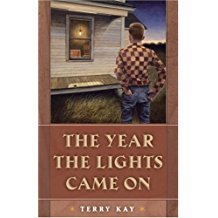 Novels abounded: THE YEAR THE LIGHTS CAME ON by Terry Kay, Anthony Doerr’s ALL THE LIGHT WE CANNOT SEE that explores the darkness of being blind. Everyone’s favorite Ray Bradbury was represented by ALL SUMMER AND A DAY. And Victoria remembered that Jules Verne’s JOURNEY TO THE CENTER OF THE EARTH had wonderful descriptions of that dark core. Susan also brought to our attention the work of an Alaskan writer, Eowyn. Ivey whose book SNOW CHILD is alive with magical realism. The story is set in Alaska in the 20’s; they build a snow child and it comes alive, but the thematic is that of a cycle of light and grieving.
Novels abounded: THE YEAR THE LIGHTS CAME ON by Terry Kay, Anthony Doerr’s ALL THE LIGHT WE CANNOT SEE that explores the darkness of being blind. Everyone’s favorite Ray Bradbury was represented by ALL SUMMER AND A DAY. And Victoria remembered that Jules Verne’s JOURNEY TO THE CENTER OF THE EARTH had wonderful descriptions of that dark core. Susan also brought to our attention the work of an Alaskan writer, Eowyn. Ivey whose book SNOW CHILD is alive with magical realism. The story is set in Alaska in the 20’s; they build a snow child and it comes alive, but the thematic is that of a cycle of light and grieving.
But Darkness is not only poetry, myth and solace. What of the Darkness of Evil? Lisa mentioned NIGHT FILM a 2014 novel by Marisa Pessel 2014 about a reporter who covers the murder of the daughter of a horror film writer. Apparently the book itself had gruesome pictures, but Lisa listened to it as an audio book, no pictures, but she still found it harrowing.
Jes too found Darkness at the core of LETTING LOOSE THE HOUNDS, fierce stories by Brady Udall, and a book called LIZARD WINE by Elizabeth Angstrom which she described as “skin-crawly writing.” And the anthology MIAMI NOIR, part of a series of cities and descriptions of dark deeds like murder.
Darkness can lie as well in politics and society as well. Frances brought to our attention a book called DOWN GIRL that charts the dark logic of misogyny. It is by a writer named Kate Manne and ends with Hillary Clinton’s defeat.
The darkness implicit in domestic violence was cited by Sean in one of his choices, BETRAYED, an anthology of non fiction pieces about domestic violence.
He also mentioned an intriguing book by a Spanish writer, Carlos Ruiz Zafon, THE SHADOW OF THE WIND that is fantastic portrayal of Barcelona at night. I can’t remember if he said it had been translated or not. For him this fired up the spark of a novel about two flamenco dancers during the Franco era. So light certainly came from that darkness.
For myself, I return to the work of two of my favorite writers, Edith Wharton and Charles Dickens. Wharton’s ETHAN FROME is so chilling that cold and night and darkness drape across the entire story, lit only here and there by light thru a church window, a candle on a table, meager firelight that illuminates a grotesque cripple.
Dickens’ late novels are unremittingly dark. BLEAK HOUSE and OUR MUTUAL FRIEND seem to me to take place wholly in the grim darkness of a London winter, though in fact this is not the sole setting for these novels. The pervasive effect of darkness is at their very hearts.
And too….famously we have HEART OF DARKNESS. As the protagonist/narrator, lifted on the tides of the Thames, retells his search, not simply for an individual, but for the core of a whole empire and the Europeans who have lost themselves and their souls to it. Despite the heat of Africa, this novel is very dark indeed.
In January Red Wheelbarrow Writers Book Club moves from Darkness to Transformations. Bring your thoughts/books/instincts to the Pickford this Sunday, January 14th at 4 and share your writerly insights.
November 19, 2017
Food, Glorious Food!
As ever, the Red Wheelbarrow Writers brought a swath of experience and enthusiasm to our November topic: Food. In fact, Linda brought a big jar full of cookies to complement one of her titles, Diane Mott Davison’s TOUGH COOKIE. Linda’s cookies were not at all tough, and supplemented our other important food groups, wine and popcorn.
Our choices included fiction, and nonfiction seasoned with travel memoirs, nonsense verse (Shel Silverstein’s EVERYTHING ON IT) and a book of table Graces (both courtesy of Amory). Travel included Jes’s pick: a big beautiful Pacific Northwest Cookbook, way too big to take on a small boat, but that’s what Jes did. Now, years later, she can open the book and still smell the boat. Bob too had sailing memories, a book written by two Canadian sailing amigos from Mexico. HOW TO LIVE AT SEA by Lynn and Larry Pardy is about provisioning for a sailing journey. Bob shared some of the book’s wisdom: no nude cooking and cabbage keeps forever.
Authors are always in need of research, so unsurprisingly a number of historical books dealing with food were brought (literally) to the table. Marian touted DIGGING FOR VICTORY, Transcripts of a BBC Radio show during World War II in which potatoes played a major role, and another WWII British book, WE’LL EAT AGAIN, a collection of recipes by Marguerite Hatton.
Other historical offerings came from Janet who touted the work of Jackie Williams, a writer who specializes in the culinary histories of pioneer Washington and pioneer Oregon. Janet also brought along her own grandmother’s volume of Sarah Josepha Hale’s RECEIPT BOOK, originally published in 1857. These are not just recipes, but all sorts of 19th century household advice, so difficult, so demanding that you will regard your washer, dryer and dishwasher with renewed affection and respect.
Laura R. brought up a wealth of kids’ books in which food plays a major role, so much so that we might just tackle that as a topic one day. She mentioned GREEN EGGS AND HAM, of course THE LITTLE HOUSE series, CHARLIE AND THE CHOCOLATE FACTORY, THE LITTLE RED HEN, the strawberry scene in HEIDI. I, personally, can never forget the tender scene of the gaoler’s daughter bringing tea and toast to poor Mr. Toad in his lonely cell.
http://laurakalpakian.com/wp-content/uploads/2017/11/chef.mp4
A variety of nonfiction titles came up. Lisa brought the work of the lively writer, Michael Pollan, IN DEFENSE OF FOOD and especially THE OMNIVORE’S DILEMMA, which she said were so inspiring, they changed the way she cooks. Frances brought a book that had been assigned to her high school age sons, A HISTORY OF THE WORLD IN SIX GLASSES. The book follows beer, wine, spirits, tea, coffee and soft drinks. I wish they had assigned books like this when I was in school.
Pam chose books by authors she has met and worked with at writing retreats, Candace Miller’s LICKING THE SPOON, a memoir with food, and a more somber title, Florencio Ramirez’s nonfiction, EATING LESS WATER about the inordinate (and possibly unsustainable) amount of water we use in farming and livestock.
Of all the novels where food plays a central role, Marian mentioned THE GUERNSEY LITERARY POTATO PEEL SOCIETY, a bestseller from a few years ago. Susan contributedthe Tom Robbins novel, B IS FOR BEER which can only be described as, well, a Tom Robbins novel. One of my faves: the Great Virginia (Woolf’s) masterpiece TO THE LIGHTHOUSE that features Mrs. Ramsay’s never-to-be-forgotten boeuf en daube. In A FAREWELL TO ARMS the protagonist Frederic Henry eats and drinks his way through Italy in the grim days of the Great War. The novel’s insistence on food in the last chapters when he retreats to a tavern and proceeds to gobble his way thru many sausages while he knows his wife lies dying—this has always puzzled me, though I think now that it is an insistence on living in the midst of all that dying, sheer bodily sustenance, eating. I included my own 2006 novel AMERICAN COOKERY which has recipes at the end of each chapter, recipes allied to the many characters and their varied experiences. The scope, intent and backstory of AMERICAN COOKERY are too complex to address here.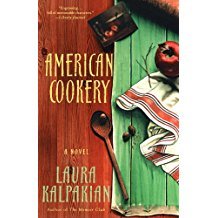
Susan and I both have vast cookbook libraries, and we read cookbooks like novels, so in bringing our choices to the RWB Book Club, we restrained ourselves. Susan brought two great big glossy, gorgeous picture cookbooks, FRIEDA’S FIESTA, recipes from Frieda Kahlo’s kitchen (edited by Diego Rivera’s daughter) and DINING WITH THE IMPRESSIONISTS. Of the big glossies in my collection, I vote for MONET’S COOKBOOK; though the text is not very well written, the photos are magnificent, and the recipes too. (I did not bring it because I cannot find it, and I wonder if I lent it to someone!) My all-time favorite non-glossy is THE ALICE B. TOKLAS COOKBOOK. It can be opened anywhere and enjoyed as much for the vignettes braised in tart prose as for the recipes themselves.
Then there are the many tomes of those doughty Food Writers, the late M. F. K. Fisher, the late Elizabeth David. More contemporaneously, I find that Laura Shapiro’s books about food and women’s lives never fail to both enlighten and entertain. 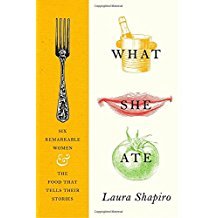 I have loved her work since her first book, PERFECTION SALAD some thirty years ago. Her most recent WHAT SHE ATE reflects on the importance of food in the lives of six particular women, beginning with Dorothy Wordsworth in the 1790’s and coming to Helen Gurley Brown of 1960’s COSMOPOLITAN fame, who, it seems, lived entirely on sugar-free Jello so as not to gain weight. Shapiro’s witty prose is seasoned with lively insights; all her books can be read time and again just for pleasure.
I have loved her work since her first book, PERFECTION SALAD some thirty years ago. Her most recent WHAT SHE ATE reflects on the importance of food in the lives of six particular women, beginning with Dorothy Wordsworth in the 1790’s and coming to Helen Gurley Brown of 1960’s COSMOPOLITAN fame, who, it seems, lived entirely on sugar-free Jello so as not to gain weight. Shapiro’s witty prose is seasoned with lively insights; all her books can be read time and again just for pleasure.
These posts cannot do justice to the ways in which we, the RWB Writers, bounce ideas and ignite conversation, discussion. We talk about these books from what we call a writerly perspective. Anyone is welcome to join us, the second Sunday of each month at the Pickford at 4 pm. For December our topic is Darkness, whatever that might mean to you. We only know for certain it will be an interesting time.
November 2, 2017
RWB October Book Club
RWB BOOK CLUB October 2017
We 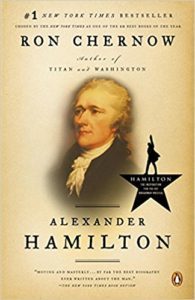 undertook Biographies. Immediately (as is always the case with this group) discussion was spirited. Our understanding of the genre expanded far beyond the first modern biography, Boswell’s 1791 LIFE OF SAMUEL JOHNSON.
undertook Biographies. Immediately (as is always the case with this group) discussion was spirited. Our understanding of the genre expanded far beyond the first modern biography, Boswell’s 1791 LIFE OF SAMUEL JOHNSON.
Bob made the case for the biography of an era, NIXONLAND. Nixon himself hardly shows up in the first 400 pages. The author used every last morselette of research he ever did so portions of it felt leaden. But anything you want to know about the watershed Democratic Convention in Chicago, 1968, it’s here.
And Jes brought up books that serve as biographies of whole industries, Mark Kurlansky’s well regarded COD, and SALT, and his new one about paper, PAGES.
Another hybrid of the biography form is Victoria’s selection: Ginger Strand’s intriguing dual biography of the Vonnegut brothers during WWII. THE BROTHERS VONNEGUT: SCIENCE AND FICTION IN THE HOUSE OF MAGIC which sounds like a fascinating read. Lisa’s contribution was also of a scientific variety, WIZARD: THE LIFE AND TIMES OF NIKOLA TESLA.
Dual biographies are another new hybrid, such as Pam’s choice, Annette Gordon-Reed’s THOMAS JEFFERSON AND SALLY HEMMINGS: AN AMERICAN CONTROVERSY. I recently very much admired THE AMBULANCE DRIVERS about Ernest Hemingway and John Dos Passos during World War I and after. And another interesting multi-biography THEY ALL BEHAVED BADLY (wonderful title) about the whole crew who accompanied Hemingway to Pamplona from which he created THE SUN ALSO RISES. (All these people, by the way, wrote copious memoirs of their own.)
Can a serious historical novel double for a biography? Yes! Said Frances, touting Hilary Mantel’s WOLF HALL and the novels of Phillipa Gregory for another, offered by Pam, as well as the novels of Ken Follett. In fact a great historical novel can breathe such vivacity into long ago lives that the reader often walks away with a much more vivid sense of the person and the era.
(Librarian Linda however reminded us that historical novels don’t have an index that allows the reader to quickly return to the material if necessary, and they don’t have a bibliography or notes at the end where the reader, if interested, can check the sources. As it happens both Linda and I are great source checkers, curiosity if nothing else.)
We all agreed that the trinity of first rate American biographers includes Doris Kearns Goodwin (TEAM OF RIVALS about Lincoln’s cabinet) Ron Chernow (he of the famous HAMILITON and his new book GRANT) and David McCullough (TRUMAN) writers whose work is always well written, well researched and rewarding.
Some biographies just have undeniable charm. Victoria offered the recent BEATRIX POTTER’S GARDENING LIFE by Marta MacDowell. Some biographies tackle philosophical/political questions. As an anthropologist Carol is very conscious of who has the right to write the stories. She cited NISA: THE LIFE OF A BOTSWANAN WOMAN, and for Cuban color, (always essential) ONE DAY IN DECEMBER by Celia Sanchez.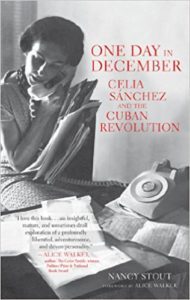
For myself, I have been reading biographies since I was a child. There used to be a whole series, the Landmark Series for children, biographies of famous Americans. On jaunts to the library with my mom, Peggy K. Johnson, I went through nearly all of those. Biography was always my mother’s favorite genre. My father was never interested in books, and so she used to share with me, the oldest kid, the stories and lives she’d read. To this day when she’s not writing her own memoirs, my mom still loves biographies. She no longer has to go to the library. I buy them for her and read them after she is done, including the recent Philbrick tome, VALIANT AMBITION, a life of Benedict Arnold.
The first grown-up biography I read at age twelve was Esther Forbes’ long ago Pulitzer Prize winner PAUL REVERE AND THE WORLD HE LIVED IN. The phrase “the world he lived in” fanned my interest, hoping to be plunged into the 18th century for which, even then, I had a special affection. I once thought I would be a biographer rather than a novelist, but I haven’t the scholarly wherewithal. As a historical novelist I get to read a lot, but can equally use imagination to create the proverbial “world he lived in.” 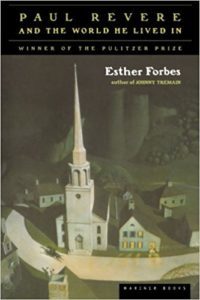
The Red Wheelbarrow Writers Book Club meets again Sunday November 12th at 4 pm at the Pickford film center. November’s topic: FOOD. Yum.
August 16, 2017
40 Years Without Elvis
In honor of the 40th anniversary of Elvis’s passing, I offer this story that takes place on that date as one young woman makes an imaginative leap. Where were you when Elvis died? I was in Italy.
A CATHOLIC COUNTRY
This early in the morning, the dining room of Rome’s Excelsior Hotel was deserted and, in its marble 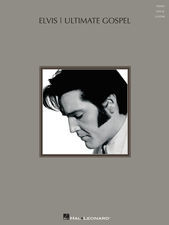 splendor, all sound heightened into clarity; even the pages of the International Herald Tribune crackled when they should have whispered. A portly waiter clicked his heels and inquired if Signor Shaw and his family wished another caffe latte. As he poured (silver pots in his gloved hands), the waiter glanced at the two-column front-page picture of Elvis Presley in full regalia. “Triste,” said the waiter in a clucking tone, “la morte di Elvis, the death of the very great singer, the King of Rock and Roll, e triste, sad, yes?”
splendor, all sound heightened into clarity; even the pages of the International Herald Tribune crackled when they should have whispered. A portly waiter clicked his heels and inquired if Signor Shaw and his family wished another caffe latte. As he poured (silver pots in his gloved hands), the waiter glanced at the two-column front-page picture of Elvis Presley in full regalia. “Triste,” said the waiter in a clucking tone, “la morte di Elvis, the death of the very great singer, the King of Rock and Roll, e triste, sad, yes?”
“Right,” said John Shaw, crisply as though the word were a head of lettuce.
The waiter offered another caffe latte to Emily, who declined with a practiced grazia. That word, along with per favore, buongiorno, and now morte and triste, formed the whole of her Italian vocabulary. Emily wondered why all the Europeans she had met on this trip had endured the trouble of learning English, only to use it as waiters, clerks, or travel agents. If she could ever master a foreign language, she would want to be a diplomat. At the very least.
The doorman came to their table, respectfully informed Signor Shaw that their car and driver awaited their pleasure. His manicured English, sotto voce tone were commensurate with the gold and cream decor, the huge floral displays, and rosy pink marble of the dining room. John said they’d be there directly. Barbara, Emily’s mother, said she was ready for anything that would get them out of Rome’s beastly heat. She said again it was a pity they must come to Europe in August. The heat. The crowds. Terrible service. A September excursion would have been so cool and satisfying.
John and Barbara both (and probably without meaning to) looked exasperatedly at Emily. It was Emily’s fault they must travel in August because in September she would be a freshman at USC. This wonderful European trip was her parents’ gift for her high school graduation. Emily was piously grateful, but she knew the trip had been occasioned by John Shaw’s tawdry involvement with one of the lowlier secretaries at his law firm. The affair itself was absolutely undiscussable, and so Emily’s parents had filled the six weeks with pleasanter topics, like John’s making Barbara late to her sister’s wedding in 1966, Barbara’s snubbing John’s mother at Thanksgiving dinner in 1972, his speculating with their insurance in 1968, her spending habits, running up the credit cards and thinking he was made of money. Despite all this, the Shaws’ marriage was durable, functional, and ugly as an old garbage scow. John Shaw was indeed made of money. In effect, he and Barbara were quarreling over the price of his lapse. The secretary episode was but one more weapon in Barbara’s arsenal of moral superiority.
At eighteen, Emily recognized that only shared expediency united her parents. She thought it rather degrading, but as an only child lacking allies against the adult world, she ignored the obvious. John and Barbara would have been shocked at Emily’s insight and judgment, not simply because the judgment was so harsh, but because she had always been so pliable, polite, the prim, incurious product of an Episcopal upbringing and an ocean-view home. Moreover, Emily was one of three (count them) virgins to graduate, class of 1977, El Capitan High School. John and Barbara never guessed at Emily’s sophistication and they would not have believed she could come by that sophistication with so little experience. But Emily read. Emily devoured books—novels, poetry, biography, mysteries, Gothics. She kept books stashed all over the house, as a glutton hides bonbons. Her literary acquaintance ranged from Romantic poets to romantic sagas, Daphne Du Maurier to Daniel Defoe, James Michener to Henry James; her taste was catholic, wide-ranging, intense, and as a result, her knowledge was far broader and deeper than eighteen years in Orange County, California, would ordinarily have granted a girl.
When Emily had taught herself to read at the age of three, her parents believed they had a prodigy, but Emily never again did anything the least bit prodigyish and flunked all tests for Gifted. She was merely odd. She got odder by the year and would occasionally come out with a line of Frost or Bronte that shocked her parents far more than a good, hearty shit. For her fourteenth birthday, they took her to a much-touted performance of King Lear and she mystified them by noisily crying her eyes out because she was so moved.
Though Emily had failed as a prodigy, her parents took comfort in the fact that she did not give them any anguish. Conventionally pretty, her smile testified to the orthodontist’s skill, and she dutifully took piano and tennis lessons. Practiced. Played Juliet in the high school production but showed, mercifully, no deeper inclination to Act. She did not get pregnant, or arrested, or have accidents with her car. Did not even get tickets. Did not get drunk or high. She had dates, but no special boyfriend. She seemed, in short, soft-center compared to the gleaming, keen-edged daughters of their friends. Barbara and John assured themselves that the challenge of a major university and a good sorority (Barbara had been a Tri Delt) would put some polish on Emily, season and sharpen her, as would this wonderful European trip.
The six wretched weeks—England, France, Belgium, Switzerland, and Italy—were now mercifully drawing to a close in Rome. Hot, impossible Rome with its savage armies of juvenile pickpockets, overrated ruins, and nasty foreigners. That’s how John Shaw saw it; travel confirmed his every xenophobic preconception. Travel confirmed for Barbara that anything worth having she could buy at South Coast Plaza. John and Barbara mentally counted the hours until they could be in Pan Am’s first-class lounge, sipping drinks. You could be certain of things in the first-class lounge, as you could be certain of little else in Europe.
The trains, for instance. Hot, disgusting, and filthy. Even in first class. On their journey down from Florence to Rome they had shared their first- class compartment with a garlic-soaked priest who carried on a noisy conversation with two other Italians, fanning his garlicky breath about the compartment with expansive hand gestures. “I thought priests were committed to poverty,” John had whispered to Barbara. “What’s he doing in first class?”
After that dismal experience, John went to the concierge at the Rome Excelsior, slipped him a fat tip, and asked him to make arrangements for a car and driver to take them to Assisi. They wished a leisurely trip through the Umbrian countryside. This day-trip to Assisi was not originally on the Shaws’ agenda, but resulted from a chance encounter on the Zurich-to-Milan flight (first class, of course) with a La Scala violinist, native to Umbria. “To come to Italia!” he cried, “and to miss the region of Umbria is to have a love affair and not go to bed!”
It was an unfortunate allusion, given the Shaws’ marital situation, but the violinist could not have known that. For the entire flight—and in his charming, excellent English—the violinist waxed on about his native region: the wine, the landscape, the tremendous cultural, religious, and political events that had marked its history. Umbria! The land of saints and generals! Unsullied Italia could still be found here, only a few hours from that cesspool, Rome. Umbria! Where towns and villages subscribed to the old customs, where the old family values had not been defeated, bought off by the ugly invasion of (he looked quickly around him) British, German, and Japanese tourists. Americans, he added, were welcome.
“If you go to but one city in all of Italy, it must be Assisi!” he cried, glowing with his third or fourth cognac. “In Assisi one feels the stamp, the very shadow of a man who has been dead for nine hundred years! Imagine! What forza! The strength of that personality! To be felt so many years after death! Saint Francis was born to a rich family but gave away all his wealth, forsook possessions, position, forsook his parents, dressed in poor rough robes, begged for his bread. He followed only God’s command, Restore my church!” boomed the violinist, evidently taking the part of the Almighty in this dialogue. “And Francis did. His spirit was grander than any pope’s, and yet he remained so humble, he would sing to the lowest sparrow. I tell you, he lives still! His spirit lives on! You will feel him present in Assisi!” The violinist fell back, exhausted, and ordered one more drink before they landed.
On the strength of the violinist’s exuberance, the Shaws that morning left the Excelsior dining room, went out to find their car and driver awaiting them in the blue morning shadows of the hotel arches. It was early yet and the day’s freshness as yet undimmed.
They were disappointed in the car, which, particularly in contrast to the grand Excelsior, had a shopworn air. Their driver was smoking, lounging with the radio on, tapping one hand nervously to Elvis Presley singing Don’t Be Cruel. He wore no uniform, and he was sweating profusely; rings circled the armpits of his dark shirt. He was a slight, narrow-shouldered man of indeterminate age and he wore a cap and black sunglasses and had an unappealing stubble of beard across his narrow jaw.At the Shaws’ approach, he removed the cap but not the dark glasses. He tossed his cigarette and came to a theatrical Attenzione!, opening the door with a flourish. Then he stepped smartly to the driver’s side, snapped off the radio, placed his cap back on, and saluted. “Assisi, okay!” He closed the plastic partition separating him from his passengers, turned on their air- conditioning (his side had none), and grinned at them in the rearview mirror. He had very bad teeth.
John muttered that he had paid for better than this. Paid a good deal, in fact. (To say nothing of the concierge’s tip.) The car had a sad, tattered, fifties air to it, the seats frayed and shiny where a great many anonymous bottoms had nestled deep. The passengers sat well back and were thus protected from the prying, rude populace, but protected as well from seeing anything. Unless they leaned uncomfortably forward. As a nod to modernity, a small frigobar had been awkwardly installed. It held little bottles of wine, water, and fruit juice.
Emily opened a peach juice and retreated, as best she could, into any one of the half-dozen stories she continually told herself to make this European excruciation bearable. Sometimes she was a princess traveling incognito with unlikely Americans. Sometimes she was an incognito spy. Sometimes she was a diplomatic courier with documents of the utmost importance. Sometimes she was Joan of Arc—or someone like her—on her way to meet a Great Destiny. But the game (and in this instance, any game) proved impossible to sustain.
Getting out of Rome was tedious, harrowing. Their driver drove like a madman, darting in and out of traffic, nearly crashing, his haste and anger evident from the way he leaned on the horn and shouted at the other drivers. John and Barbara’s frustrations took up the old refrain, Christmas 1965, when John and his oafish brother had showed up late and drunk. Emily burrowed into one of her many guidebooks, reading about Umbria, Assisi, and Saint Francis (ca. 1181-1226), readying herself for yet another day of cold churches, cavernous museums, mute walls.
Once out of Rome, though, the Shaws’ mood lightened. The countryside lived up to the violinist’s enthusiasm as they moved into Umbria. High, ancient hill towns looked like Leonardo backgrounds rising out of the plains. Ancient cypresses gnarled along the roadsides like thick arthritic fists. John was about to comment happily on the natural beauty when their driver took an abrupt, unsuspected turn. No one had seen a sign that said Assisi. No one had seen a sign at all. Emily suggested perhaps this was the scenic route. They had asked for a countryside ride. Perhaps he was taking them off the beaten path.
“No kidding!” cried John as they bounced up twisting roads. Before you could say Saint Francis of Assisi, the road narrowed yet again: two cars could hardly pass, and when a truck came from the opposite direction, the Shaws’ driver put the car in reverse and inched down the narrow track to a minuscule turnoff, cursing all the while. As the truck passed, he exchanged obscene gestures with the driver before he bounced back on the road. Through their plastic partition, they watched the driver bring a bottle to his lips.
John’s imagination, scrawny though it was, began to entertain dark thoughts. The Italians were great kidnappers. John realized he had not notified the American embassy in Rome of his monied presence. Obviously he was a rich American, senior partner in a California firm of corporate lawyers. His thoughts of the Red Brigade were interrupted by Emily’s retching. John banged on the partition and the driver turned to him, cigarette dangling from his sneering lips. The driver had no English beyond the okay he had already used, and John could not explain how Emily was susceptible to being carsick. Finally, John just stuck his index finger in his open mouth and made gagging noises.
The driver pulled over. Emily got out and vomited onto the land of saints and generals. John stepped from the car, pulled himself up, spoke sharply to the driver. “Return to Roma!”
The driver exhaled a long, blue ribbon of smoke, pointed to the radio, where Elvis wailed. “No, signor, Heartabreakahotel”
“Return to Roma!”
“No. Arrivederci, Roma, eh?” With a coarse laugh and brusque gestures, he pointed John back in the car. He made Emily get in the front seat with him. He pressed on the gas pedal. He meant business.
John Shaw considered himself a risk-taker. He had cheated on the LSAT to get into law school. He had embezzled money from his own firm to cover a bungled real estate deal. He had forged his wife’s signature on a deed of trust. He had trod the risky, mined fields of adultery with many willing women, including his partner’s wife, the now ex-Mrs. Brill. But now, here, in this car and for the first time in his life, John Shaw kicked himself for being a fool. He could have bought Barbara a new Mercedes to make up for screwing the secretary. He didn’t have to come to Europe at all. The garlic-smelling priest was but a small price to pay for the safety of crowds and public conveyance. He hated himself for staying at the expensive Excelsior, for renting a suite instead of a room, for listening to some stupid goddamned wop fiddler tell him he should go to some stupid goddamned town and feel the presence of a man who was such a goddamned fool that he would give away his riches and talk to a bunch of goddamned birds.
Barbara’s hand inched over his thigh. Her face was pale. He took her hand, as much for his comfort as hers.
Emily, for her part, had no thought of the Red Brigade. However, she was alarmed at the driver’s drinking, which he now took no care to conceal. His driving became increasingly cavalier as the roads got narrower and they circled higher into the hills. They narrowly passed a motor scooter and she wondered how, since she spoke no Italian, she might offer some comment on safer driving. She pointed to herself brightly and said, “Emily. Signorina Emily Shaw.”
“Mi chiamo Carlo,” he replied glumly.
“Buongiorno, Carlo.”
“Ah, signorina!” Carlo whipped off his glasses. The stubble on his chin notwithstanding, he was clearly a good deal younger than she’d first supposed, perhaps in his mid-twenties, not much older than Emily herself. His face was full of pain and he struggled with a storm of feeling. His lower lip trembled, ash from his cigarette fell to his pants, but he brushed it away without blinking. His dark eyes raked over Emily’s face. “Ah, signorina!” he cried again and again, babbling on, wiping his eyes, explaining frantically as he lit cigarettes one after another. He spoke swiftly, swilling from the bottle, offered it to her. “Grappa?”
Emily declined with thanks (in Italian) and he glugged down more, drove on, heedless of the ruts and potholes, crying, choking, wiping his nose on his sleeve, explaining everything. Everything.
Emily thought he seemed especially comforted when she nodded, so she did, over and over, but she caught almost none of what he said, save for the words she had just learned this morning. “Morte?” she inquired as another Elvis song. Are You Lonesome Tonight?, came on the radio.
Carlo broke into a fresh paroxysm of weeping. Emily touched his shoulder consolingly and made tut-tut noises, though she thought it odd that an Italian should get so worked up over the death of an aged American rock and roller. Even Elvis’s music was so clichéd, all you could do was sigh or giggle. Still, Emily offered Carlo the words of her Excelsior waiter. “Elvis Presley, morte. Triste, si.”
“Mamma e mortal” cried Carlo, “Mio Dio! Mamma mia!” His hands flew off the wheel and he wrung them before God as the car careened toward a cliff. They were moving high now, up into the Umbrian hills, and the road (like the much-vaunted path to Virtue and Wisdom) was steep and rocky. Steam began to plume from the hood of the car. Carlo kept drinking, smoking, and with every new Elvis tune on the radio, he shook his head, muttered, until All Shook Up burst into the car and then he seemed to jump out of his seat, throttle the wheel, shout, pointing into the distance.
At the top of the hill, Emily could see the pink and apricot walls, the medieval towers of a small city, a village perched up high with wide skirts, fields flouncing down the hillside, fields of corn and bronzed sunflowers.
Emily leaned forward. For six weeks now she had dutifully responded to pictures, monuments, museums, churches, icons of cultural significance. She’d obeyed tour guides and timetables; she’d endured the maid’s mocking reply to her question about the bidet. She had borne the unbearable proximity of her parents. But now, as Carlo drew in on this high town embraced still in its medieval wall, encircled with fields, its towers bathed in the noonday light, for the first time since she had come to Europe, Emily Shaw was actually interested in the vista and experience before her. They were not going to Assisi. They were not going anyplace where a guidebook might be of use. They were going to some undiscovered country where, she felt certain, the language would come to her easily, expressively, where, indeed, she might very well be native.
Pulling through the narrow city gates that gave onto an even narrower street, Carlo began tooting his horn wildly, waving at pedestrians and bicyclists alike, shouting them from his path. Men, women, children flattened themselves against the walls and jumped into doorways as Carlo barreled through the threadlike lanes. A car, going in the other direction, seemingly pulled into a greengrocer’s shop to allow Carlo to pass, and as he passed, people reached out to touch the car with their hands, some bringing fingers to their lips and crying out his name. The car climbed past shops and churches, under banners of laundry strung between the buildings, up streets so narrow only the noonday sun could penetrate to cobbles otherwise steeped in ancient shadows. Church bells tolled as they pulled through an arch and into a courtyard surrounded on three sides by crumbling buildings of vanilla-colored stucco, cracked and mottled with age. Thick webs of laundry festooned the windows. There was a low wall where a neat garden of peppers and tomatoes gleamed on carefully tied stakes, and in the distance, the Umbrian hills surrounded them in a dry, rugged embrace.
Carlo jumped out taking the key with him. He dashed up a broad stone staircase and vanished into the green darkness at the top. News of his arrival seemed to bounce around the courtyard, echoing back into the street, rolling amongst the stone buildings like the tolling of a church bell.
Ignoring her parents, Emily got out and walked to the wall, looking over the hills toasted everywhere to a Franciscan brown, where corn and drooping sunflowers sloped far below her. She heard a high, fragile train whistle and saw a distant plume of smoke fall back, exhausted, against the fields. The train itself was invisible. Overhead the sun burnt brassy, and heat reeled round her like a saint’s unsubtle halo in a medieval painting. Emily felt suddenly light-headed and would not have been at all surprised to rise and fly, swoop over the burnished fields, as you would in a dream, where the old dull laws, like gravity, vanish and new laws prevail. This conviction grew girth and weight and radiated substance: something wonderful was about to befall her. Love, maybe. Her senses were, each one, sweetly sharpened and she felt enhanced, even ennobled. She carried this freshly minted conviction almost visibly as she walked to an old cistern where water plopped from the mouth of a stone lion.
John got out of the car, rumpled and sweating. “Don’t be an ass, Barbara! Does it look like Assisi?”
Barbara wobbled uneasily after him. “How do I know? How do you know? God, it’s hot!”
“Where did the goddamned driver go? Where is he? The little bastard!”
Barbara suddenly clung to her husband. “John, please get him to take us back to Rome. Please. Pay him anything. Maybe he’ll take a card. Anything. Just get him to drive us back to Rome.”
“He won’t take you anywhere,” said Emily, at last understanding what had escaped her entirely in the car. She drank from the cistern, rinsed her face, arms, neck, dried with the hem of her colorful cotton skirt, and turned to her parents. “His mother has died. In there.” She nodded toward the arched, shadowed stairway. “Carlo never had any intention of taking us to Assisi.”
“Carlo?” demanded Barbara. “Since when are you so chummy? Did that little wop make a pass at you?”
“I’ll have his Italian ass in a sling!” vowed John, adding he’d have Carlo’s job as well; he’d tell the Excelsior, the American embassy. Worse, he hinted darkly, he’d tell American Express.
Barbara reminded him that none of this could come to pass until they got back to where they had been. “Which is going to be hard,” she added sourly, “since we don’t even know where we are.”
“We are in a catholic country.” Emily spoke slowly, translating for these foreigners. She explained without elaborating, “The country of the imagination is always a catholic country.”
John and Barbara regarded their odd daughter with undisguised bewilderment that quickly dwindled into indifference as they volleyed blame for last year’s Mazatlan vacation. “Remember the mule trip?” Barbara remarked savagely. “That was your idea! Just like this! I have to pee. You’d better find us a ladies’ room, John. Fast.”
A ladies’ room proved impossible, but eventually they found a unisexual hole in the floor behind a closed door, with a moth-studded light bulb screwed into the wall and a hallelujah chorus of flies. This was in a bar. Before they had found the bar, they had inquired of people met on the street, Bathroom? Bathroom?, reduced to finally the expedient. Toilet? Wherever they asked, their American voices made people stare boldly and rudely. Walking down the town’s narrow central street, they created their own, uncivil procession. From open windows overhead came a medley of opera, Abba, and Elvis; scratchy TV voices, wavering radio combined with chattering songbirds, their cages hung in the windows. As the Shaws’ English floated upward, Italian matrons came to the windows and called out dourly to one another. Emily often heard Carlo’s name in the exchange. Clearly, the sunny slogans of the Italian tourist board did not ring true here in the unsullied Italia.
They found the bar. They found the toilet. Barbara first and then Emily preceded John into the room with the hole in the floor. While they waited for her father, Emily watched flies play over sandwiches stacked on the counter. She absorbed hostile stares from the people in the bar, perhaps a dozen of them. The violinist had assured them only British, German, and Japanese tourists were despised in Umbria. Americans were all right. Emily tried the universal passport: a smile. Not valid here.
Blue Suede Shoes came rolling out of a vintage radio, followed by Jailhouse Rock, and the woman washing glassware turned up the music and wiped her eyes on the edge of a stained apron, her sad gesture totally at odds with Elvis’s young voice, his unvarnished sexual energy.
Emily cleared her throat. “Elvis, morte. Triste, si?” People in the bar became voluble, if not altogether friendly, and when John came out of the toilet, he was surprised to see the locals talking at Emily, if not to her, and Emily making the same tut-tut noises she had used with Carlo.
“Ask them how we get to Rome,” John demanded. “Ask them if someone speaks English. Someone in this goddamned town has got to speak English.”
Perhaps. But the Shaws never found this mythical English speaker as they wandered from shop to shop, buying bread and fruit and mineral water, trying to ease and pave their way with lire as they inquired how they might get back to Rome, absorbing the locals’ unconcealed curiosity and ill will. Finally, with a great many hand gestures, much mental effort, and cobbling together a number of responses, Emily figured out there was a train. They could catch the train. There. In the distance. Down. Low. In the fields. Where? There, at the bottom of the hill. The train will take us back to Rome? Where goes the train? The train will take them, well, somewhere. The train would take them somewhere.
They started down the hill while all around them screens came down and shutters slammed shut. The orchestration of exclusion was deafening. The town shut up and shut down for the long midday meal and nap. Not like in the big cities, according to the Umbrian violinist. In the big cities shops stayed open all the time and Italians there had “lost everything of value while they suck up”—really, Emily had been surprised to hear so cultured a man use so vulgar a phrase—“to the almighty dollar—or rather deutsche mark.” Well, thought Emily, as the streets emptied, clearly this was the old Italia.
A stout woman carrying a chicken slung over her shoulder hurried past them. The chicken’s head at the end of its long, wrung, hapless neck was swinging with metronomic regularity across her black-clad back as she retreated down the narrow street. Hypnotically, Emily watched the swinging chicken head, feeling, oddly, that she might have been following a woman in 1177, rather than 1977, down this very street and out these gates, the time of Saint Francis himself, when people worked the sloping fields by day and returned here, atop this hill, at night. Behind these high stone walls, families had hunkered over bread and wine, alert always for the glimmering watch fires of invading armies. What were tourists but yet another invader?
Behind her, her parents exhumed Mazatlan in 1976 as they all passed through the city gates and followed thin, dusty trails that Carlo’s ancestors had trod through the corn and ruffling sunflowers. A hot wind dried her sweat and parched her lips. On the lathe of history, Emily turned story after story, imagining herself carrying a rake, a scythe (instead of this plastic grocery bag and her own purse), leaving the town daily at dawn, walking down this path and climbing back up it at night, working till-death-did-you-part from Adam’s curse, from earning your bread with the sweat of your brow. From the time of Saint Francis, these people— none of them with Francis’s forza, all of them anonymous as the dirt beneath Emily’s feet—these people had stooped and sweated and shivered till they dropped and died and were buried. But where? Emily had seen no cemetery. Where did Carlo’s ancestors do their dust-unto-dusting? Where would they bury Carlo’s mother, who, like Elvis Presley, had died in August 1977: a chunk of time broken off as bread could be broken off, as knowable and subject to decay as bread.
“It wasn’t the mule trip that ruined Mazatlan,” snarled John. “It was your goddamned sister, bitching and moaning and—”
“My sister was sick! You never let up on her! You never . . .”
Emily hastened her step to escape them. Their very presence seemed a sort of wart on the imagination, a blister on the conviction that something extraordinary was about to befall her. However, she had begun to doubt it was love. Love—well, true love (and why bother with anything less?)— would need to speak English, after all. So perhaps it wasn’t love, she reasoned, walking swiftly, but something less predictable. She reached the train tracks long before her parents and dawdled there, absorbing every scent and sound, the most mundane of which must surely have its significance. It would all—she was certain—be made manifest.
Approaching the tracks, Barbara brandished the simpering specter of John’s college girlfriend. “Your own mother told me so! God, it’s hot! Your own mother told me you wanted to marry Cherie!” Barbara drooled over the name as if it were a Goo Goo Cluster. “Would your mother lie? Of course, she only said it in the first place to be mean to me.”
“Here’s the goddamned track,” said John, turning to Emily. “Now, where’s the goddamned station? Where do we catch this goddamned train? My mother never said any such thing.”
Emily abandoned them to their unsavory past and walked up the tracks with a dreamy dignity befitting one of the last three virgins in the class of 1977. She walked till she heard the sputtering of a car and could see the solid lineaments of an ancient farmhouse, thick walled, faded tiles sloping down the roof. The farmhouse outbuildings backed up to the track, and nearby there was a railway maintenance shack on one side and, across from it and down a bit, a shelter of sorts, obscured by a canopy of vines. It was old, unkempt, and it had a withered timetable under glass. Every weekday there were two trains. A northbound at 12:18 and a southbound at 3:10.
In the shade of the vines, Emily sat on the bench and tore off a chunk of bread, ate it slowly, alternately with the dripping peach. Looking up, she could see the high town glowing in the unreal Umbrian sunshine. The peach dripped off her wrist and she licked it casually. She twisted open the bottle of mineral water and took a long swig, wiped her mouth with the back of her hand, much as Carlo’s ancestors must have done, taking their midday meal in these fields, long before there was a railway, a shelter, or any timetable beyond the sun and moon. She winced to hear her parents approach; they had moved from the base to the debased, from the unmentionable to the unspeakable.
“As God is my witness, Barbara! I swear, that secretary—clerk, really— she never meant anything to me and I never went to bed with her.”
“Liar!”
“ Look, Barbara, let me make this short and sweet, like the Old Maid’s Prayer: I never screwed the secretary. Okay?”
“Liar!”
“I was tempted, I admit, but—”
“You dirty fucker! Fuck you! Do you think I’m a fool? You’ve fucked everything that walked into your office! You fucked Ilsa Brill—your partner’s wife! Ex-wife now. You were fucking her brains out for a year! I should have divorced you right then! So help me. I’ll do it this time. You’ll have to split everything right down the middle and—”
“Try it! There’s not a lawyer in Orange County who will represent you against me! If you think . .
Emily rose, dropped her peach pit, left the bread, the bag, her purse, forsook possessions, position, deserted her parents and walked away, as though she could simply granulate into the August light. She went toward the farmhouse, turned the first corner she came to, and caught the scent of food and a sweet-sad waltz. I Can’t Help Falling in Love with You. Elvis again.
She came upon the farmhouse courtyard and stood behind a leafy lattice, where she was hidden from their view. Through the lattice she could see a table set for perhaps a dozen people in the shade of an arbor. Little children rolled and tumbled in the sparse grass, and women carrying plates from the kitchen to the table sidestepped chickens pecking about the yard. In a semicircle, interspersed with potted geraniums, old men in shirtsleeves and suspenders quarreled volubly. A middle-aged woman barked commands at her teenage son, who ignored her, ducked the cuff she intended to deliver, and vanished into the house. A young mother kept trying to give a crying baby over to husband, who would have none of it. The baby’s cries competed with the radio commentator rattling in nonstop Italian, and then Elvis warbled out Ready Ready Ready to Rock and Roll. The young mother thrust the baby at her husband and left them both there. She went into the kitchen. He joined the garrulous old men, entering into the argument while he ineffectually bounced the baby on his knee.
With an arch look to her husband, the young mother brought out a bowl mounded high with something plain and grainy-looking. It was the sort of dish—indeed, the sort of meal, wine, tableware, and company—Emily did not recognize, since her experience had been limited to churches, museums, and the dining rooms of places like the Excelsior Hotel. Here before her were not the sort of people who would eat at the Excelsior, nor drink in Pan Am’s first-class lounge, nor shop at South Coast Plaza. Why then should Emily envy them? But she did. A clean, clear, somehow invigorating slice of envy. For the first time in her eighteen years, Emily Shaw experienced envy outside a darkened theater or the pages of a book.
As the family began to convene at the table, the fast song finished and the DJ next played Elvis singing Santa Lucia, simply, eloquently, and (Emily was surprised) in Italian. Someone in the kitchen turned up the volume and music floated out to the table like an invisible guest. But at that moment the teenage boy burst into the yard, laughing, clutching a guitar, and raucously rendering Houndadogga till his mother snatched the guitar, pointed him to the table, and clearly asked God what she was to do with such a son. For his part, the boy lounged in his chair, still snickering.
Emily wished she could have been that boy. From the protection of the lattice she looked up and down the table, wishing she could have been that boy, or his old mother, or the young mother (who held her baby), or the husband, or the cantankerous old men, wished that, like any one of them, she could act on impulse, emotion, instinct.
From the radio Elvis rang out It’s Now or Never; the boy stood and, to a round of indulgent applause, sang an exaggerated operatic O Sole Mio, but to Emily, It’s Now or Never seemed a cue, a command—oh, not anything so grand or shattering as Restore my church! but a call to act. Act on impulse, emotion, instinct! Act! And be empowered by the imagination! Act! And create a story that will free you and defy your circumstances, those random vagaries of time and place. Time must be denied. That’s essential. Because time—like sequential chunks skewered on days and decades—takes always its pound of flesh, history grind-and-granulating, powdering people into dust and ash and pausing for no one, no matter how forza certainly not for Carlo’s mother, not for Elvis, not even for Saint Francis. History is so unbearable it must be dignified with story. That’s why and how people dignified battle with bravery, dignified lust with love, dignified digestion with cuisine, dignified sleep with dreams and death with Last Words. In a story, no one ever dies without Last Words. Oh, they might die gruesomely, but it is always to some dramatic purpose; without dramatic purpose, they would not die at all and you know that from the beginning. But in history, people just croaked.
Look at Elvis. What did the morning paper say? Emily fought to remember what she had thought merely trivial. Elvis had been found on the bathroom floor, fallen ingloriously off the toilet. The King fallen from the throne. The man who could move and touch so many disparate lives, could he truly be found mute, facedown on the bathroom floor? Not in a story, he couldn’t. But that’s how real people died. That’s why Carlo raced to get here, knowing that justice and Last Words are only guaranteed outside of history, in that storied catholic country where imagination reigns and rewards gallant gestures.
It’s Now or Never finished and the boy finished O Sole Mio and Emily took her cue, that fearful step, moved from the embrace of the lattice, liberated herself from puritan restraint, from history, and opened the low gate, empowered now to walk through and into their lives. The family laughed and chatted, forks pinged, plates passed, glasses lifted before they finally noticed her there, like her own ghost, moving joyfully toward them, her empty hands outstretched, the moment sliced precisely in half with the nearby whistle of the train. Adhering to its timetable, the train’s metallic shriek caught Emily tangled in the August sunshine, as you get caught, tangled in a dream, twisted, only to find the sheets wrapped round your wrists and ankles, shackling you to history, when you wake.
August 15, 2017
Books That Changed Your Life
The book(s) that changed your life. There’s a fine topic for a Book Club full of writers.
Some of us started with books that shook our childish selves, that let us know we were not alone, or made us yearn to be in their pages.. For Laura R. it was LITTLE HOUSE ON THE PRAIRIE, and for Pam it was MY SIDE OF THE MOUNTAIN BY Jean C. George, about a rural childhood, and a fearless boy named Sam.
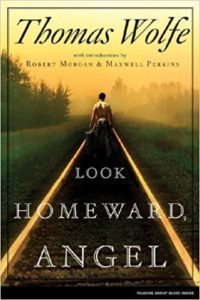 Laura R. as a young adult found herself in love with Thomas Wolfe’s LOOK HOMEWARD ANGEL, slain by his rich, poetic language, as was I at about the same age. I so loved OF TIME AND THE RIVER, I typed up whole passages and kept them in my wallet. As a young adult Pam discovered, cheered to read ANNIE ON MY MY MIND by Nancy Garden (1982) about a teenage girl who has a lesbian crush. Marian, growing up in bleak, prim post-war England found that Mary McCarthy’s THE GROUP (1963) served the dual purpose of sex education and liberation.
Laura R. as a young adult found herself in love with Thomas Wolfe’s LOOK HOMEWARD ANGEL, slain by his rich, poetic language, as was I at about the same age. I so loved OF TIME AND THE RIVER, I typed up whole passages and kept them in my wallet. As a young adult Pam discovered, cheered to read ANNIE ON MY MY MIND by Nancy Garden (1982) about a teenage girl who has a lesbian crush. Marian, growing up in bleak, prim post-war England found that Mary McCarthy’s THE GROUP (1963) served the dual purpose of sex education and liberation.
As young adults, at least two writers admitted to having been vastly influenced by Ayn Rand before they outgrew her. (I personally think it’s because Rand’s characters just knock through every obstacle unencumbered by thought which has to be an adolescent’s dearest dream.)
For some of us, youthful exposure to classics proved life-changing. For Connie it was THE SOUND AND THE FURY, a book she found enthralling and confounding at the same moment. For Laura R (and for this Laura as well) it was TO THE LIGHTHOUSE, a book I still reread often. (It’s a summer book; don’t try it in winter.) And I would also have to add THE GREAT GATSBY which I read in one summer afternoon. (Again, a summer book.)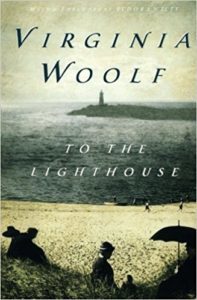
A youthful reader often responds vividly to words-on-the-page that are earth-shattering. As adults, more sophisticated, perhaps even jaded, such acts of discovery are more rare. But when they happen, they are profound.
For Bob, Steven Pinker’s 2002 book, BLANK SLATE: NATURE VS. NURTURE was life changing. Pinker’s research posits that people are 10% influenced by the parents, 50% by peers, and 40% by genes. Bob says that much of Pinker’s book was based on a book by Judith Richards published in 1998. Nature vs. Nuture sparked a lively discussion among us as parents and adoptive parents. Bob considers his youthful friends far more important to the man he became than his parents were. Sometimes he looks back at his parents and asks: who were you?
Laura R too found more recent titles that shook her conceptions and offered paths through the thicket of identity. Hallowell and Rater’s 2001 DRIVEN TO DISTRACTION about ADD was on such book which codified for her patterns in her own choices. Stephen Prestfield’s 2005 THE WAY OF ART taught her that every day you need get up and fight on behalf of art. Pam found similar guidance in Anne Lamott’s OPERATING INSTRUCTIONS.
Frances spent years mulling the possibilities raised in Charles Osburn’s MYSTERIOUS SHAKESPEARE: the Dark Lady and the Inky Scribe. Osburn puts forth the notion that the Earl of Oxford actually authored the plays. Passions run high on this topic and Frances’s did too. Two current books also radically shaped her thinking, SPIRIT LEVEL by Wilkinson and Pickett about equality and inequality and why greater equality makes societies stronger. For the third month in a row she also touted Michelle Alexander’s THE NEW JIM CROW about civil rights in the years following Brown vs. the Board of Education, 1954.
Novels also provided RWB writers with profound aha moments, including the recent ALL THE LIGHT WE CANNOT SEE by Anthony Doerr (Connie)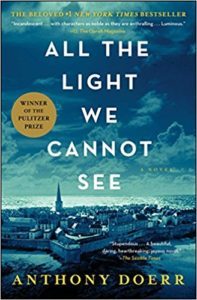 and SPARROW, by Mary Doria Russell, a book described as Jesuits in space and applauded by both Pam and Marian. I wish I could say that a more modern novel shook my very core, but I have to go back to my first reading of ALL THE KING’S MEN which, with its tight structure wrapped in rolling prose, knocked me over. When I first read THE WIDE SARGASSO SEA, I did not know the “punch line,” so I parsed it together haltingly. Can one be swept away by Henry James? Three of his works haven’t so much changed my life, but remained always vivid, indelible, PORTRAIT OF LADY, WASHINGTON SQUARE, and THE ASPERN PAPERS.
and SPARROW, by Mary Doria Russell, a book described as Jesuits in space and applauded by both Pam and Marian. I wish I could say that a more modern novel shook my very core, but I have to go back to my first reading of ALL THE KING’S MEN which, with its tight structure wrapped in rolling prose, knocked me over. When I first read THE WIDE SARGASSO SEA, I did not know the “punch line,” so I parsed it together haltingly. Can one be swept away by Henry James? Three of his works haven’t so much changed my life, but remained always vivid, indelible, PORTRAIT OF LADY, WASHINGTON SQUARE, and THE ASPERN PAPERS.
The life-changing book I brought to the Pickford was a massive, tome, Robert M. Myer’s 1973 CHILDREN OF PRIDE, a tour de force of masterful editing. Twelve hundred letters exchanged among members of a southern family from 1854 to 1868. I read it when it was first published, and continue to find it artistically inspiring. It has all the power of a novel, but that power lies not in artfully constructed characters, but in the voices of people who live through cataclysms never knowing the outcomes.
We meet again September 10th for our annual Book Exchange.
August 4, 2017
RWB WRITERS JULY BOOK CLUB
 July 2017 Red Wheelbarrow Book Club
July 2017 Red Wheelbarrow Book Club
Honoring the 4th of July our topic was America! Books that spoke to us of American life, American writers, American landscape, the swath and heartbreak of being American. To this subject we brought the prism of individual experience, and created a lively discussion that could have gone on for hours.
America is a vast Continent (to say nothing of Alaska and Hawaii) and several of us cited landscape books, Willa Cather’s DEATH COMES TO THE ARCHBISHOP, the work of Terry Tempest Williams, Bill Bryson’s WALK IN THE WOODS about the Appalachian Trail. PIANO TIDE, about a woman who goes to Alaska to escape her past, invokes that distant frontier. Though Walt Whitman, personally, never traveled beyond New York, New Jersey, or DC, to me his work evokes vast landscapes and the restless American spirit.
Bob, who is partial to the years between 1750 and 1850, spoke of books that explored frontiers (plural intended). Stephen Ambrose’s UNDAUNTED COURAGE about the Lewis and Clark expedition figured largely in his reading of America, as did Daniel Boone. He cited John Faragher’s biography of Daniel Boone, of whom it was said that if he could once see smoke rising from a neighbor’s chimney, he had to move on, move, out, move further west, a truly restless American spirit. Bob also cited Roderick Frazier Nash’s 1967 book WILDERNESS AND THE AMERICAN MIND, and another book of that vintage that chronicled the Native American’s conflict, Peter Farb’s MAN’S RISE TO CIVILIZATION AS SHOWN BY THE NORTH AMERICAN INDIANS FROM PRIMEVAL TIMES TO THE COMING OF THE INDUSTRIAL STATE. Whew! What a title.
Frances too, took her books from the point of view of groups marginalized in America, THE NEW JIM CROW by Michelle Alexander, and HILLBILLY ELEGY by J. D. Vance which she said she didn’t like as much, but still chronicled American experience. She also added the Carson McCullers’ classic novel, THE HEART IS A LONELY HUNTER.
Linda offered Sherman Alexie’s new memoir YOU DON’T HAVE TO SAY YOU LOVE ME a book “doubly compassionate” about his childhood on the Rez. Janey shared her enthusiasm for this book.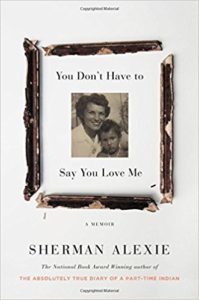
Several people chose books by outsiders to evoke a notion of America. Bill Bryson came up again with I’M A STRANGER HERE MYSELF. Pam brought an intriguing novel, AMERICANAH, by Chimamanda Ngozi Adichie by and about a Nigerian woman who came to America and then returned to her own country, an account of being black in America without the constraints or the burden of slavery.
A different kind of America, the proverbial American dream lies at the core of the book Jes chose. Stewart O’Nan’s recent novel WEST OF SUNSET is about F. Scott Fitzgerald’s last years in Hollywood writing for the movies, a great writer at the end of his tether. His masterpiece, THE GREAT GATSBY was certainly one of my picks for July. In it, the self-improvement list that young Jay Gatz followed is cribbed almost word for word from another of my choices, THE AUTOBIOGRAPHY OF BENJAMIN FRANKLIN, the All-American story since 1790 and still lively and readable 225 years later. 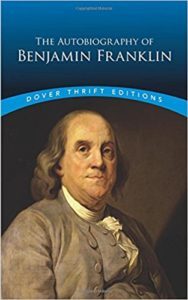 And finally, what discussion of America would be complete without the works of Mark Twain? His is the quintessential American voice: wise-cracking, irreverent, confident.
And finally, what discussion of America would be complete without the works of Mark Twain? His is the quintessential American voice: wise-cracking, irreverent, confident.
In August the RWB Book Club will meet on August 6th, the first Sunday in the month.
The topic this month is personal: A book that influenced or changed or life. Come prepared to hear great stories.
July 19, 2017
Books You Don’t Want to Read Late at Night
Red Wheelbarrow Writers Book Club June
Yes, RWB Writers, I am still very late. But two in one day! That’s a record for me!
For June we chose not a genre of writing, but rather from our experience as readers: Books You Don’t Want to Read Late at Night. And, as usual—and to be expected among the Red Wheelbarrow Writers—we brought a swath of experience to the lobby at the Pickford Film Center where we meet, drink wine, eat popcorn and alert one another about memorable books from a writerly perspective. 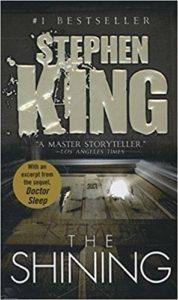
Of course Stephen King figured largely among our readers. The Shining freaked out more than one person. Laura R. told the story of being twelve and unable to read his Pet Semetary except in daylight and in a room full of other people. She felt the same way about his Dark Tower series.
Jean cited the work of Angela Carter, gory, yes, but the suspense, the danger, the sense of being scared doesn’t depend on the gore, but rather on the writing. Lisa cited books by Justin Cronin, a new trilogy about Vampires, The Twelve and City of Mirrors. These were enough to keep her awake. Janey was kept up all night reading a book by Tovah Jansson, The Summer Book.
Jes has been totally scared by the novels of Elizabeth Engstrom like Candyland, and Jack Remick’s novel Blood. Both of these writers are into sadism, though their novels are well written and interesting and no doubt make you squirm even if you do get to sleep.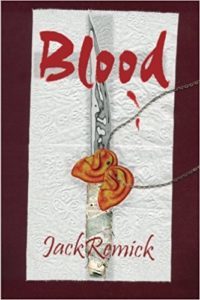
Susan must have stayed awake many nights. She spent many years as a middle school teacher, and read all Stephanie Meyers Twilight series and the Hunger Games. She also read the Anne Rice vampire books and was kept awake by them as well. Shirley Jackson, Edgar Allan Poe, writers who have been keeping readers awake for generations. But Susan’s most recent read that kept her awake was of a sadder nature, the work of Brian Doyle, a Portland writer who died earlier this year and whose Catholic spiritual writing left her awake and thoughtful. Brian Doyle’s work was among those books that keep you awake not because you are scared shitless, but because they make you think or fear or feel.
Victoria never reads scary stuff, but her mind has been boggled into wakefulness by the work of the nonfiction writer, James Gleick, and more recently by Peter Wohlleben’s Hidden Life of Trees, how trees communicate with one another and learn.
Frances was kept awake thinking about the book by the recent Michelle Alexander book, The New Jim Crow about civil rights in the years following the 1954 Brown vs. The Board of Education Supreme Court ruling that ordered the end of segregated schools. 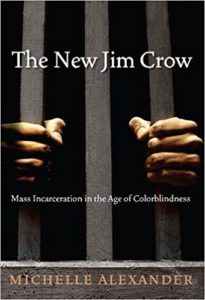
Bob, who admits to reading to too much health care stuff, is kept awake by National Geographic articles about flesh-eating parasites. He is also partial to the work of Douglas Preston, especially his Lost City of the Monkey God.
Like Victoria, I do not often read scary stuff. But a long time ago, in order to procrastinate writing a college paper I unwisely picked up a nonfiction book about the Boston Strangler. I could not put it down, and even when I was too scared to read anymore (fearing that the Boston Strangler would appear at any moment there in Riverside, California) I was too scared to sleep. I stayed awake all night (finishing the book) waiting for my roommate to come home from a date. She went straight to work from her date. When she came home, I was wild-eyed and sleepless and insisted she read the book. We were both terrified of BS whom we finally turned into a household pet so that we could tame him.
Red Wheelbarrow Writers Book Club….May
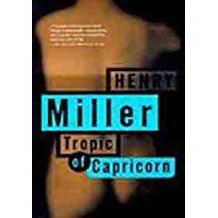 RED WHEELBARROW BOOK CLUB FOR MAY
RED WHEELBARROW BOOK CLUB FOR MAY
The Red Wheelbarrow Book Club combines the pleasures of wine with popcorn. We don’t all read the same book. We come together to alert one another about many books, the insights and epiphanies they offer from writerly perspectives. Each month we collectively choose a genre or topic. For May, for spring, we chose the notion of Sex, Fertility, Renewal. The Red Wheelbarrow Writers never wear literary corsets. Possibilities abound.
We might begin with some classics. Bob suggested John Cleland’s 18th century unputdownable naughty volume, MEMOIRS OF A WOMAN OF PLEASURE titillating readers now for some two hundred plus years. To the classics I added D. H. Lawrence, not simply the banned LADY CHATTERLEY’S LOVER, but some of his lesser known work, THE RAINBOW (which was also banned in England when it came out c. 1915) and its sequel, the aptly named WOMEN IN LOVE, and THE WOMAN WHO RODE AWAY. Lawrence is always convolute and hyperventilating about sex. Lisa cited a more contemporary author, Augustin Burroughs’ LUST AND WONDER about his love-life partners.
The notion of Renewal brought unique titles. When Bob thinks of renewal, he thinks of nature and suggested WILDERNESS IN THE NATIONAL PARKS by Roderick Fraser Nash. Jean brought a novel, Karen Fishers’s A SUDDEN COUNTRY, a story of the frontier, the Oregon trail, based on the diaries of Fisher’s ancestors. Jean also brought an anthology of poems by Latina American women writers, a book that always refreshed her spirit.
Renewal can take place in the imagination as well as the body. For Susan, renewal takes place in the kitchen, or, more correctly, the pages of cookbooks. She shared some luscious examples, books visually gorgeous, appetite-stimulating, FRIEDA’S FIESTA, recipes and art by Frieda Kahlo,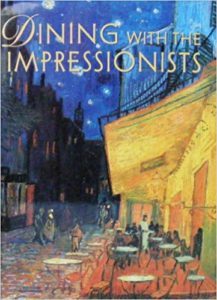
DINING With THE IMPRESSIONISTS, a book that again combines art and food, pictures, recipes, and a book with the witty title, INTERCOURSES, a Sex cookbook by Martha Hopkins Randall Lockwood, guarantee to spice up your sex life. To these titles I might add MONET’S COOKBOOK, the recipes are interesting, the writing is pretty commonplace, but the pictures are so beautiful one feels like one has been to what must be the most refreshing and memorable garden in the world.
To this lively discussion we added the work of Walt Whitman who, it seems to me, writes in every poem, every page about sex, fertility and renewal. And of course the unabashedly erotic diaries of Anais Nin and her lover and compatriot, Henry Miller, his TROPIC OF CANCER that was smuggled out of France (where it was not banned) into countries like ours where it was banned. (And I can attest that in a different era it was also smuggled in and out of dorm rooms.)
Jes’s suggestions cited Noir anthologies like NOIR TRINIDAD, NOIR MIAMI, anthologies of writing about the steamy underbelly of various places, good for readers who like danger on the page, and THE DEADLY SPACE BETWEEN by Patricia Duncker about a family, weird sex and lots of erotic writing. Jes’s especial comments were reserved for a book by Elizabeth Engstrom, LIZARD WINE. This innocent looking volume had a rather plain cover, but it told a horrifying tale of a couple of college girls who tangle with drifters. “Absolutely,” said Jes, “you do not want to be reading this book before you go to sleep.”
Which, after more discussion, more wine, more popcorn, brought us to our June topic: The Books You Don’t Want To Read Before You Go To Sleep. For Whatever Reason.
February 27, 2017
And To The Republic For Which She Sits
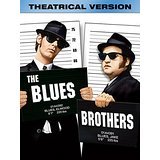
We’re putting the band back together
And To the Republic For Which She Sits
I was part of the Hell No We Won’t Go generation, 1968 when our resistance was focused on forcing the government to end the Vietnam War. We certainly did not invent mass protest, the proverbial petition in boots, but with television, our mass protests spilled into tidy American homes. That was new. In the decades since then, my generation has often been portrayed as comic, tie-dyes, feathers, flowers, stony smiles and peace signs,. Our serious efforts rendered into antic undertakings. One era’s hard-won conviction is another era’s easy assumption.
And then in January 2017, the notion of a “petition in boots” (as someone smarter than I coined it) took on new meaning. In the weeks since the Women’s March, the impetus—the need, the obligation—for mass protest has become an unrelenting, an almost daily urgency. I thought such social unrest, such a sense of political emergency as I experienced in my youth would not happen again in my lifetime. But fifty years later, here we are. And by we, I mean not just the graybeards and the grandmothers of 1968, but to quote Elwood of the Blues Brothers: “You. Me. Them.”
As a young person in DC for the 1969 Moratorium March a phalanx of my amigos and I all crashed at a friend’s apartment the night before. With us was the sister of a German friend who was visiting her brother. The morning of the March I was surprised to see her applying foundation makeup, heavily, as if for a party. She must have sensed my prissy disapproval because she tossed me the bottle and said, “Here. You’ll need it. When they gas you, the makeup helps to protect your skin.”
The prospect of gas was never far off. We knew that. As we made our way to the March we walked by government buildings sandbagged against us, prepared for an assault, and National Guardsmen behind those sandbags with rifles and bayonets. A sobering sight. And yet most of the Guardsmen were young people, like us, and several surreptiously flashed the peace sign.
We were 250,000 strong that day. More than anyone had reckoned on. Certainly more than that pig Nixon had reckoned on, though in calling out the sandbags and the National Guard he knew we were dead serious. Six months later four protesters were dead. Killed in May, 1970 by the Guard at Kent State and more at Jackson State. Four months later Bobby Seale, a defendant in the Chicago Seven trial, was bound and gagged in the courtroom. At the order of the judge. The Republic stood imperiled, and the rights Americans relied on eroding.
I remember being deep in the crowd the day of the ‘69 Moratorium March, looking up to a platform. Joan Baez sang. Inspiring speakers rallied us. “If Nixon wants to know how to move soldiers peacefully out of ‘Nam,” one guy memorably called out to rousing cheers, “he should ask us!” In fact, aside from brief skirmishes, 250,000 of us did move peacefully into and later out of the city.
However, the image I remember best was wordless. Not far from my cadre of friends a woman had spread a blanket on the grass. She had a couple of little kids with her, a preschooler and a five year old. Other than her children, she was alone, no other adult family members. I was astonished that a mother would bring her little children to a march where there was a threat of violence, of gas, where protesters were surrounded by guys with guns. And yet, she sat there, amid the restless crowd, calmly slathering peanut butter on white bread, handing out sandwiches. The kids sat, cross-legged in front of her, munching, listening. She was an ordinary looking woman, perhaps thirty-five, no outlandish clothes, no feathers or flowers in her hair, no love beads. At odds with the rousing rhetoric, she exuded serenity. Her image seared into memory.
Last month my daughter-in-law took my little grand-daughter to the Women’s March. I was proud of them; I was also glad there was no threat of gas, no armed National Guard. This is not to say there won’t be. Perils lie ahead, of that I am certain. Even so I take heart from the remembered image of that mother at the 1969 Moratorium March. The simplicity of her sitting on the blanket—amid the raucous, impassioned outcry, while the crowd surged and shouted and the National Guard stood armed—calmly handing out sandwiches to her children seemed like an emblem. To me she represented confidence, not simply in the justice of our cause, but confidence in the Republic itself. That confidence in the republic spurs us now, 2017 to put our boots back on, our petitions into our feet, marching now. You. Me. Them. In fact, with Elwood and Jake of the Blues Brothers, we might all say, “We’re putting the band back together.”
October 31, 2016
2016 Collective Novel SPECIAL COLLECTIONS
It’s November and time for NaNoWriMo and for the Red Wheelbarrow Writers Annual COLLECTIVE NOVEL This year entitled SPECIAL COLLECTIONS. Each day in November a new writer will push this story’s envelope and engage or enrage the rest of us. Have at it, amigos. Poets, this one is especially for you.
With apologies to Hart Crane whose father was a candy manufacturer and to Henry James’ THE ASPERN PAPERS, I give you, SPECIAL COLLECTIONS.. Complete with visual. Enjoy!
SPECIAL COLLECTIONS
Chapter 1 by Laura Kalpakian
 The university library was an architectural marvel: eight vast floors of tinted, protective glass that rose from a narrow pedestal with spectacular views in every direction. It looked like a spaceship, but it felt like a church to Margaret Harper with Special Collections at the top like the Sistine Chapel. And the 8th floor had its own keyed elevator, quite apart from the various elevators used by mere mortals. Margaret, the Head of Special Collections, was so early this morning that she had that elevator to herself. She smoothed her conservative skirt and hoped she’d used enough concealer under her eyes. She’d hardly slept at all last night. She blamed her restlessness on her cat, Frito, who kept jumping off and on the bed, but she knew that in fact Frito had absorbed her anxieties and not the other way around.
The university library was an architectural marvel: eight vast floors of tinted, protective glass that rose from a narrow pedestal with spectacular views in every direction. It looked like a spaceship, but it felt like a church to Margaret Harper with Special Collections at the top like the Sistine Chapel. And the 8th floor had its own keyed elevator, quite apart from the various elevators used by mere mortals. Margaret, the Head of Special Collections, was so early this morning that she had that elevator to herself. She smoothed her conservative skirt and hoped she’d used enough concealer under her eyes. She’d hardly slept at all last night. She blamed her restlessness on her cat, Frito, who kept jumping off and on the bed, but she knew that in fact Frito had absorbed her anxieties and not the other way around.
Today was the day of Margaret’s crowning moment of her career so far, her first literary acquisition. The estate of Derwent Lassiter, renowned poet of the Beat Era, would be presented to Special Collections by his niece, his last living relative. Margaret had long struggled for this moment; the worth of Derwent Lassiter’s estate had not gone uncontested, especially since Lassiter’s niece was asking $500,000. When stating their case to the Library Foundation Board, Margaret and her ally, Felix Ingersoll of the English Department, had contended that Lassiter was not only a fine poet in his own right, but he had long, lively, sometimes disputatious associations, (and exchanged lots of letters) with major figures in the Beat Era, Kerouac and Ginsberg, Ferlinghetti, Gregory Corso and many others outside that disreputable crowd, with more staid, respectable poets like Phillip Levine and Donald Hall. Felix had seen the letters.
In meetings, Foundation Board Chairman Lloyd Jones had looked over his bi-focals, glaring at the entire Board. “Miss Harper is asking the University to pay $500,000 for the work of a writer who published four or five scant books, a few anthology pieces in his lifetime.
“Angel at the Barroom Brawl is a great poem,” Felix contended. “It won a Pulitzer.”
“His grandfather created Choc-O-Nibs!” Lloyd Jones scoffed. “Lassiter’s great gift—if various memoirs and literary gossip are to be believed—is that he caroused his way through life, drinking, talking, traveling, smoking pot, and sniffing cocaine, finally dying of self-inflicted liver disease.” Jones was a sallow man who wore impeccably tailored suits and Italian shoes. “He bedded women left and right and never married, and finally when he was broke and alone, he retired to our fair city to live in his grandfather’s sprawling lakeside home. Living off the family trust fund of a candy manufacturer. Choc-O-Nibs? Mr. Jones’ deep, impressive voice dripped with sarcasm, concluding,“Moreover Derwent Lassiter spurned all contact with the university, replied to Foundation’s many overtures with language I cannot repeat.
“I made friends with him toward the end,” Felix Ingersoll interjected.
“Yes,” Jones replied acidly, “you’ve been courting up his niece for years.”
Felix, in his hearty way, had laughed. “Courting is not a verb I would use with regard to Miss Prescott.”
Margaret reminded herself to call the last living link to Derwent Lassiter Miss Prescott. Everyone at Special Collections just called her The Niece. The Niece was wizened, ugly, with tiny claw-like hands, beady eyes and a long nose oddly attached to her upper lip so that when she talked her nose wiggled. You couldn’t tell how old she was. Sixty? A hundred and sixty? She was tense, terse, snarly, and Ingersoll had in fact courted her up. Got her price down from a million to $500,000. In the end the Library Foundation offered her $35,000 and she took it.
“Oh!” Margaret cried when the elevator doors opened on the glorious 8th floor. “I thought I’d be the first one here!” Milling in front of her were half a dozen people including the assistant librarian, Vanessa Ames, who Margaret was almost certain was a Lloyd Jones spy.
“Paperwork,” said Vanessa. “The Niece has to sign the paperwork today. Documents are in your office, Margaret.”
Margaret’s administrative assistant, Rebecca McShane, passing by remarked briskly, “We’ve got everything set up in the Conference Room for the two o’clock ceremony. They’ll bring the coffee up from Food Service later. I bought fresh cookies myself at the bakery, and Mother had some doilies and china plates from her wedding and I brought those along to serve from.” A woman of girth and grit, Rebecca had raised five kids to varying degrees of successful adulthood, and now looked after her wistfully demented mother, Elsie. Coming to work, dealing the silent, uncomplaining arcana of Special Collections, seemed like a vacation to Rebecca.
“You think of everything, Rebecca,” said Margaret, patting her arm. “You are a treasure.”
“The catalogue is ready for you, Miss Harper,” added Sally Lewbiosky, one of the grad student interns, “the list of library books that ought not to be on the circulating shelves, but up here in Special Collections. I had no idea we had so many rare books! Grose’s Classical Dictionary of the Vulgar Tongue. Printed in 1788, and just imagine, any old yahoo could check it out and take it home where their roommate could spill beer on it, or their baby could fling oatmeal.”
Margaret shuddered at the thought. She considered it her life’s purpose to augment Special Collections, to save books like Grose’s Vulgar Tongue and first editions of Tristram Shandy, Clarissa and other classics from the vulgar paws of mere library users. “Good job, Sally.”
Before going to her office Margaret checked out the Conference Room where her other grad student intern, Davis Delong, was placing programs on each metal folding chair. Margaret nodded at Davis, but didn’t actually speak. Talking to him was like talking to your beagle. He had big, droopy sad eyes and a big droopy sad body and he wore his pants cinched up way too high. She nodded affirmatively at him and closed the door.
Al Rabinowitz stopped her in the hall. “We’re all set for tomorrow. Ten AM, right?”
“Yes, and thank you so much, Al, for taking charge of the delivery. In addition to everything else you do for Special Collections, it’s such a load off my mind to know you’ll oversee the actual delivery.”
“Well, Margaret, the job description Tech Librarian covers a multitude of sins.” Al was an easygoing guy whose calm demeanor defused many a computer meltdown and saved more than one career. Margaret always feared that Circulation would snatch him away, pleading that they had so much more need of his tech-spertise. “I’ll introduce you to The Niece, I mean, Miss Prescott, before the ceremonies this afternoon, so she’ll know who you are tomorrow.”
“Sure, but do you know why I got an email from The Niece that said she wanted me to meet her at the library loading dock tomorrow?”
“That’s weird. I don’t have any idea. She didn’t cc me. Well, she’s old.” Margaret rolled her eyes meaningfully. Neither of them wished to say how unpleasant The Niece could be.
In her beautiful, glassed in corner office with its magnificient views, Margaret Harper went through her secret morning ritual. She always kissed her fingertip and placed the kiss on the framed studio portrait of her handsome fiancé Andrew. Today however, she put the framed photo in a desk drawer. Andrew had said he would call last night, and he had not. Margaret could feel her relationship fraying, and her heart breaking. Perhaps it was her own fault for taking this job eighteen months ago and moving away, but for seven years she had worked at jobs she thought beneath her just so that she could stay with Andrew. When this wonderful opportunity—the job she’d dreamed of since her college days!—came to her, she took it. Of course she took it! She begged Andrew to come with her. He refused on behalf of his art. He was an actor, part of a repertory company that couldn’t go on without him. Margaret had unwisely reminded him of the definition of repertory. “I didn’t need to do that,” she chided herself now, biting back a bitter tear as she closed the desk drawer over Andrew’s picture. The only other picture she had for her desk was one of Frito, and she swore she would never be one of “those” women. The sort who keep cat pictures on their desk.
At two PM the dignitaries assembled in the Conference Room, Lloyd Jones looking especially suave and grim. Other than the Library Foundation Board and her own staff, and those members of the English Department who had backed Felix, she didn’t recognize anyone here. A man she didn’t know kept plucking at her sleeve.
“I’m Huxley Allworth, Miss Harper. I teach bookbinding at the VoTech.”
“The VoTech.” She tried to keep her voice even, not sliding up to the implicit question: you’re here why? “Bookbinding. How quaint.”
“Well there’s more people than you might think interested in bookbinding, fine editions, good paper, elegant design, and I’d like to reprint some of Derwent Lassiter’s poems. You know, bind them into new editions. Collector’s editions. I’ve got some great students.”
“At the VoTech.” Margaret studied him; he was tall, pale with bright blue eyes, an earnest air, and tousled hair. She wanted to ask: Are you mad? But instead, glancing over at that pompous ass Lloyd Jones, she said, “Why don’t you talk to Mr. Jones of the Library Foundation? I’m sure he’d be delighted to discuss this with you. Excuse me. The Niece is here. I mean Miss Prescott.”
On Felix Ingersoll’s arm Miss Prescott still leaned on her cane. She was a little walnut of a woman in an unbecoming mauve pantsuit and a chartreuse boa. She seemed more alert than Margaret remembered, indeed, downright cheerful as she reached into a bag she was carrying and passed out bars of Choc-O-Nibs among the distinguished guests. Felix went rather pale as she put one into the palm of Lloyd Jones who sneered visibly.
Margaret hurried to the front of the room where she wrested the bag of candy from the Niece and handed it off to Rebecca McShane, who tucked it instantly out of sight. Thank God for Rebecca. Margaret personally led the Niece to the place of honor, a lovely wing chair reserved for her. Margaret tapped the mic and asked everyone to seat themselves, pronouncing that Special Collections was about to have a very special occasion.
****
“Holy shit!” cried Al Rabinowitz the next morning when he came down to the library dock to take possession of the Derwent Lassiter gift.
A U-Haul was parked there and the Niece was directing the work of two burly work-study students who had only emptied perhaps half of the contents. The students were grunting under the weight of a steamer trunk, huffing and puffing to get it on the dock. As he made his way toward the U-Haul Al kept glancing at the two dozen boxes which sat with their flaps open and some of their contents visible. A peacock feather waved out of one and a giant stuffed monkey grinned out of another and from a third a set of VHS tapes spilled alongside a big plastic dinosaur, a T. Rex. No papers in sight, though there was a small concertina, a set of maracas, a digeridoo, and a collapsed marionette. From another a baseball bat protruded and a catcher’s mask and from out of the mask there was a bouquet of plastic ebony roses. Al whipped out his cell phone and called Margaret Harper. “You better get down here. I think you should see this.”
“See what?” asked Margaret.
“Words fail me. Bring Ingersoll.” He slid the phone in his pocket and went up to Miss Prescott who promptly put a Choc-O-Nib into his hand. “There’s been some mistake, ma’am,” Al began gently, “Special Collections bought your uncle’s papers, his drafts of poems, his correspondence with other well known poets, even maybe his laundry list, but this?” He pulled out of a nearby crate a rubber chicken whose beak was closed shut with a roach clip. Beneath it there was a dead potted plant.
“No mistake,” she said in her thin, cackly voice. “Uncle Derwent was a poet, yes, but he was rather much of a pig and a packrat. His papers are in there but so is everything else. How else was I going to get the house cleaned out? Now at last I can rent out my great-grandfather’s lovely lakeside home. I’m so very grateful to Special Collections! Here boys!” She tossed each work-study lad a Choc-O-Nib when at last they put the steamer trunk down. “Chop chop! Get all this shit out of the truck and pronto. I have to get the truck back within the hour! Oh, and here’s the bill from U-Haul. You all are paying the freight.” She turned and wobbled back toward the cab, singing in a happy voice to the tune of My Bonnie Lies Over the Ocean, “‘My father makes book in the backroom! My mother makes bathtub gin! My sister makes love for a dollar! My god how the money rolls in!’”



